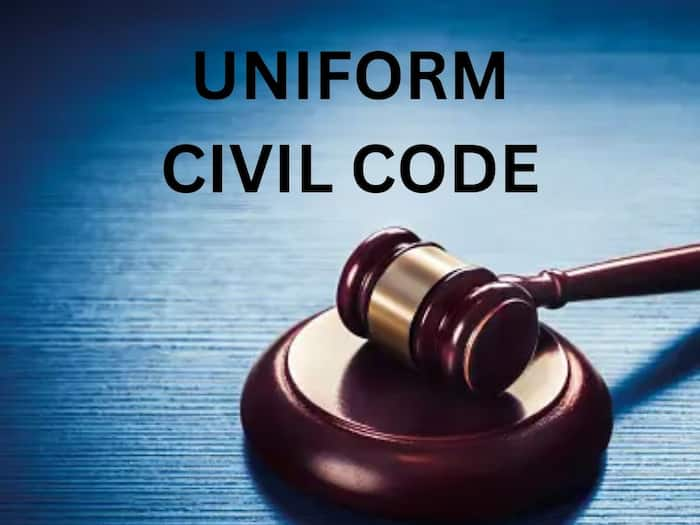The benefit of the UCC is that in the event of divorce, the husband and wife will have equal rights in the property acquired after marriage, whether he is Hindu or Muslim, Parsi or Christian.

By Ashwani Dubey
New Delhi: Implementing the Uniform Civil Code/Indian Civil Code for all the citizens on the lines of “Indian Penal Code” will free the country and society from hundreds of complex and outdated laws. In the present times, different British laws applicable to different religions create inferiority in everyone’s mind. By applying a “Uniform Civil Code or Indian Civil Code” to all citizens, everyone will be free from such an inferiority complex. The noble concept of “One husband – One wife” will be equally applicable to all the Indians and exceptions like infertility or impotence will be equally available to all Indians whether male or female, Hindu or Muslim, Zoroastrian or Christian.
A-gender-neutral religion-neutral law of divorce wil apply ot everyone. Under special circumstances, all citizens will be allowed to break the marriage in a verbal manner, whether it is a man or a woman, Hindu or Muslim, Zoroastrian or Christian.
In paternal property, son-daughter and son-daughter-in-law will get equal rights and the property-based discord and gender discrepancy over property will be abolished, and it will be applicable to all whether he is a Hindu or Muslim, Zoroastrian or Christian.
The benefit of the UCC is that in the event of divorce, the husband and wife will have equal rights in the property acquired after marriage, whether he is Hindu or Muslim, Parsi or Christian.
Agender neural religion neutral law will apply to all Indians, whether Hindu or Muslim, Zoroastrian or Christian, in relation to the will, charity, divinity, guardianship, sharing of custody, etc. The gender-based discrepancy in the religion caste and sect will end.
A comprehensive unified gender-neutral and religion-neutral law will be passed at the national level and will be equally applicable to all citizens, whether Hindu or Muslim, Parsi or Christian. Hence, it will not only promote fraternity unity and national integration but also secure gender justice gender equality, and dignity of women.
Separatist mindset arising out of having different personal laws on the basis of caste, religion, and region will be eliminated and we will be able to move rapidly towards the creation of a unified nation.
Due to different laws for different religions, one has to get involved in unnecessary litigation. Having a uniform civil code for everyone will save the Court’s valuable time and resources.
UCC will eliminate conservatism, fundamentalism, casteism, communalism, regionalism and linguism and develop scientific temper and humanism in spirit of the Article 51A. With its implementation, the discrimination in the rights of Hindu, Muslim, Parsi, Christian sisters and daughters will end. The truth is that Hindu sister-daughters will not get much benefit because women and men already have almost equal rights in the Hindu marriage Act. Muslim sister-daughters will get the most benefit from this because ni Sharia law they are not considered equal to men.
Article 37 states that it is the government’s fundamental duty to implement the Directive Principles in letter and spirit. Just as to secure the fundamental rights of al citizens, it is the duty of the government to implement the Constitution 100 per cent.
There is no separate law on religious grounds in any secular country, but we still have the Hindu Marriage Act, Parsi Marriage Act and Christian Marriage Act in force. If “Uniform Civil Code or Indian Civil Code”can apply to everyone in Goa, then why cannot a “Uniform Civil Code or Indian Civil Code” be applicable to all citizens?
It is important to clarify that fundamental religious rights such as worship, namaz or prayer, fasting and managing temples, mosques, churches, gurudwaras or opening religious schools under Article 25 won’t be affected by the implementation of the “Uniform Civil Code or Indian Civil Code”. There will be no interference in propagating religious education or adopting any method of marriage or any method for funeral after death.
Separate laws based on caste, religion, language and gender are like smouldering remains of the extinguished fire of partition of 1947, which can explode and disintegrate the unity of the country at any time. ‘Uniform Civil Code’ is necessary not only to maintain
secularism but also to keep the unity and integrity of the country Unfortunately, the “Uniform Civil Code or Indian Civil Code” has always been seen as a spectacle of religious appeasement.
Relating this discrimination to religion is unethical, immoral and wrong. India is a secular country, and is governed by the constitution. The constitution is a scripture to the Indian Democracy. It provides every freedom to the citizens, and at the same time keeps a check on them, so as to maintain public order, health and morality. Some people take the defence of Article 25, stating that a Common Civil Code offends Article 25. They quietly neglect the fact that Article 25 contains the clause, ‘subject to public order, health and morality’.
The constitution has been amended 125 times till now, Supreme Court’s Judgement has been reversed 5 times but “Uniform Civil Code or Indian Civil Code” still remains an illusion.
Disclaimer: The author is an Advocate in Supreme Court of India. The views and opinions expressed above are those of the author and do not necessarily reflect the official policy or position of India.com.
Source link




